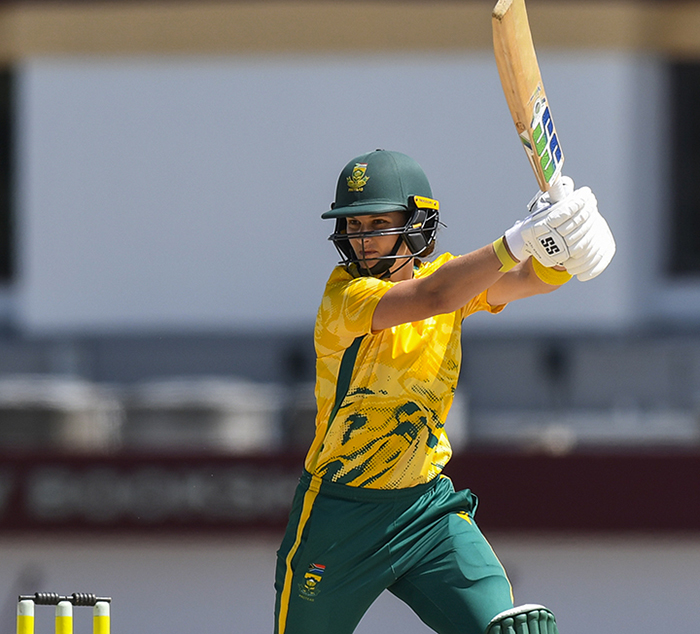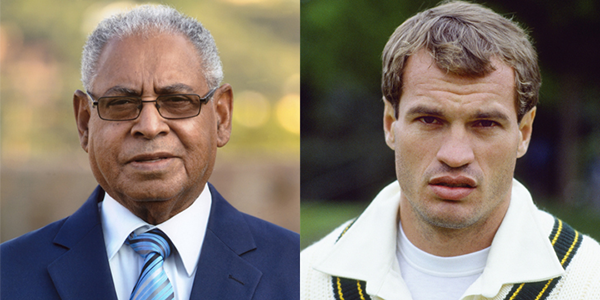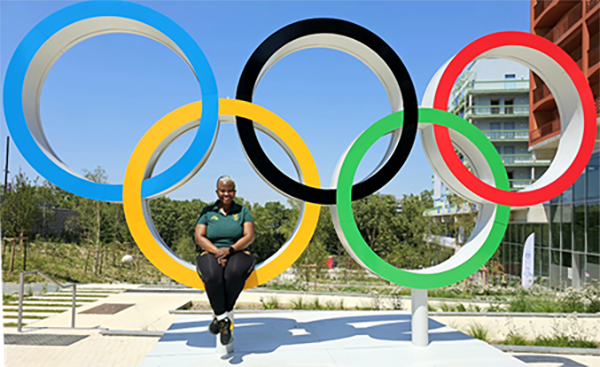

Laura Wolvaardt is the current captain of the Proteas women’s team and a recent Unisa graduate (Photograph supplied by Ms Wolvaardt)
Both South Africa’s women’s and men’s cricket captains are proud graduates of Unisa. Laura Wolvaardt, captain of the Proteas women’s team, recently obtained her Bachelor of Science in Life Sciences (cum laude) during this year’s spring graduations. Meanwhile, Temba Bavuma, captain of the Proteas men’s one-day international (ODI) and test cricket teams, earned his degree in Finance from Unisa in 2014. Their achievements and leadership tell a compelling story of how a distance-learning university, founded on accessibility and resilience, continues to produce leaders who excel on and off the field.
Cricket is a sport of patience, requiring players to stay focused when conditions change and to put in hard work behind the scenes. The same could be said of studying through Unisa. For generations of South Africans, Unisa has been the only route to earning a degree while working, caring for family or, in the case of athletes, living out of a kitbag. Open, distance and e-learning demand the same attributes that cricket does: discipline, strategic thinking and composure under pressure.
This combination has made Unisa an unlikely training ground for some of cricket’s most influential figures. From Hoosain Ayob, the non-racial cricket pioneer who earned his BA in 1975 and served as the International Cricket Council’s Director of Development for Africa in 1998, to Kepler Wessels, who completed his BA degree in 1987 and subsequently captained South Africa in 1992 after the lifting of the international sports ban, Unisa’s reach has long extended beyond the classroom. Today, its imprint is once again visible as two Unisa alumni lead the Proteas into a new era.

From left: Hoosain Ayob and Kepler Wessels
Laura Wolvaardt has demonstrated that academic ambition and sporting excellence can coexist.
The 26-year-old Proteas opener turned what seemed impossible into routine through the flexibility of Unisa’s learning model. Wolvaardt represents a new way of thinking about women in sport: the belief that education and athletic excellence can complement each other. She recently led the Proteas women into the 2025 Cricket World Cup final in India.
Bavuma grew up in Langa township outside Cape Town. His journey to becoming South Africa’s first black test cricket captain is one of determination. Beyond his skill on the cricket field and calm demeanour before the media, he exemplifies academic achievement as a Unisa graduate. Under his leadership, South Africa reached the International Cricket Council’s World Test Championship final (2023-2025). His story reflects Unisa’s enduring ethos: success earned through perseverance, not privilege.

Protea men’s cricket team captain and middle-order batsman, Temba Bavuma, graduated from Unisa in 2014 (Photograph: Shutterstock)
Unisa’s contribution to cricket extends beyond its celebrated alumni. Dr Koketjo Tsebe, senior lecturer in the Department of Psychology at Unisa, was appointed as the psychologist for Team South Africa at the Paris 2024 Olympics. Thereafter, she worked with the Proteas women’s team in preparation for this year’s ODI tri-series. She was also part of the Proteas’ support team for the Women’s ICC World Cup in India and Sri Lanka. Mandla Mashimbyi, coach of the Proteas women’s team, commended Dr Tsebe for equipping the players with the necessary tools to deal with the pressures of high-stakes competition and performance anxiety.

Dr Koketjo Tsebe
From Ayob’s fight against segregation to Wolvaardt’s leadership on the world stage, a golden thread connects Unisa to South African cricket’s story of transformation. When both of a nation’s cricket captains share an alma mater, it is more than a coincidence; it is a commentary on where leadership is being forged: not in exclusive institutions, but in accessible spaces of learning that reflect the diversity and determination of the teams themselves.
* By Cilla Boucher, Alumni Relations Officer, Department of Institutional Advancement
Publish date: 2025-11-10 00:00:00.0